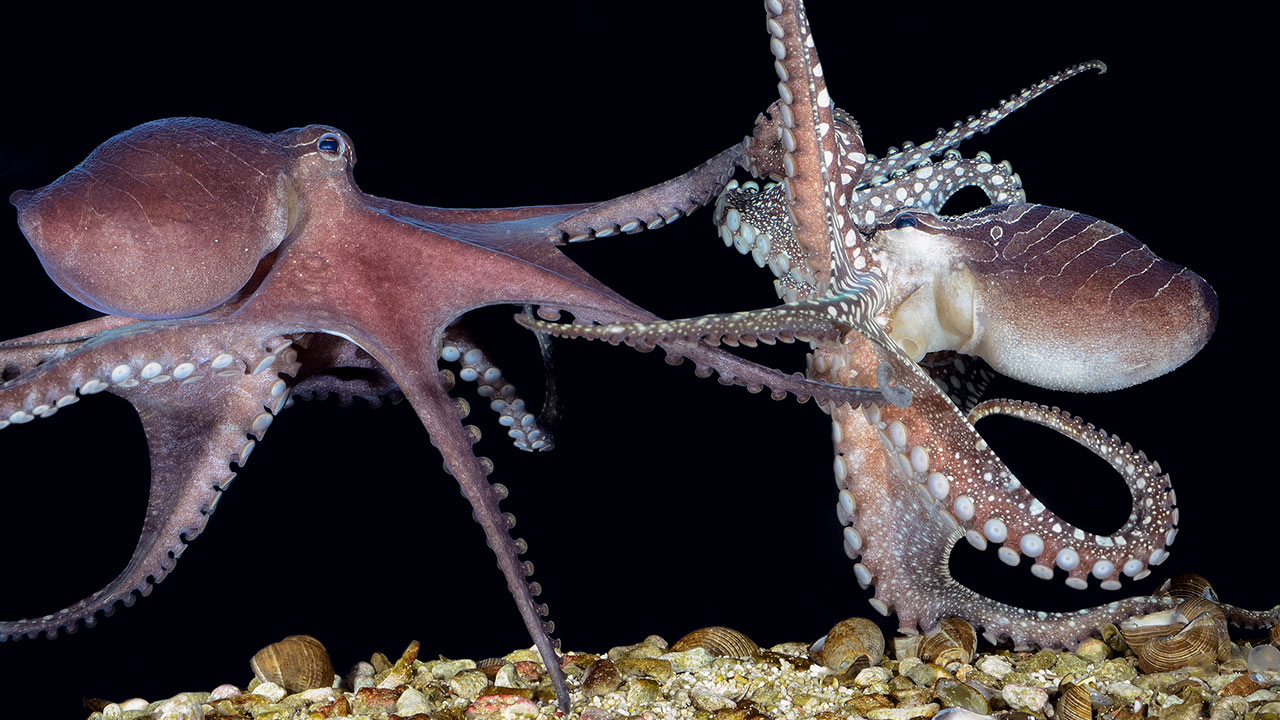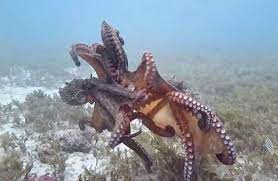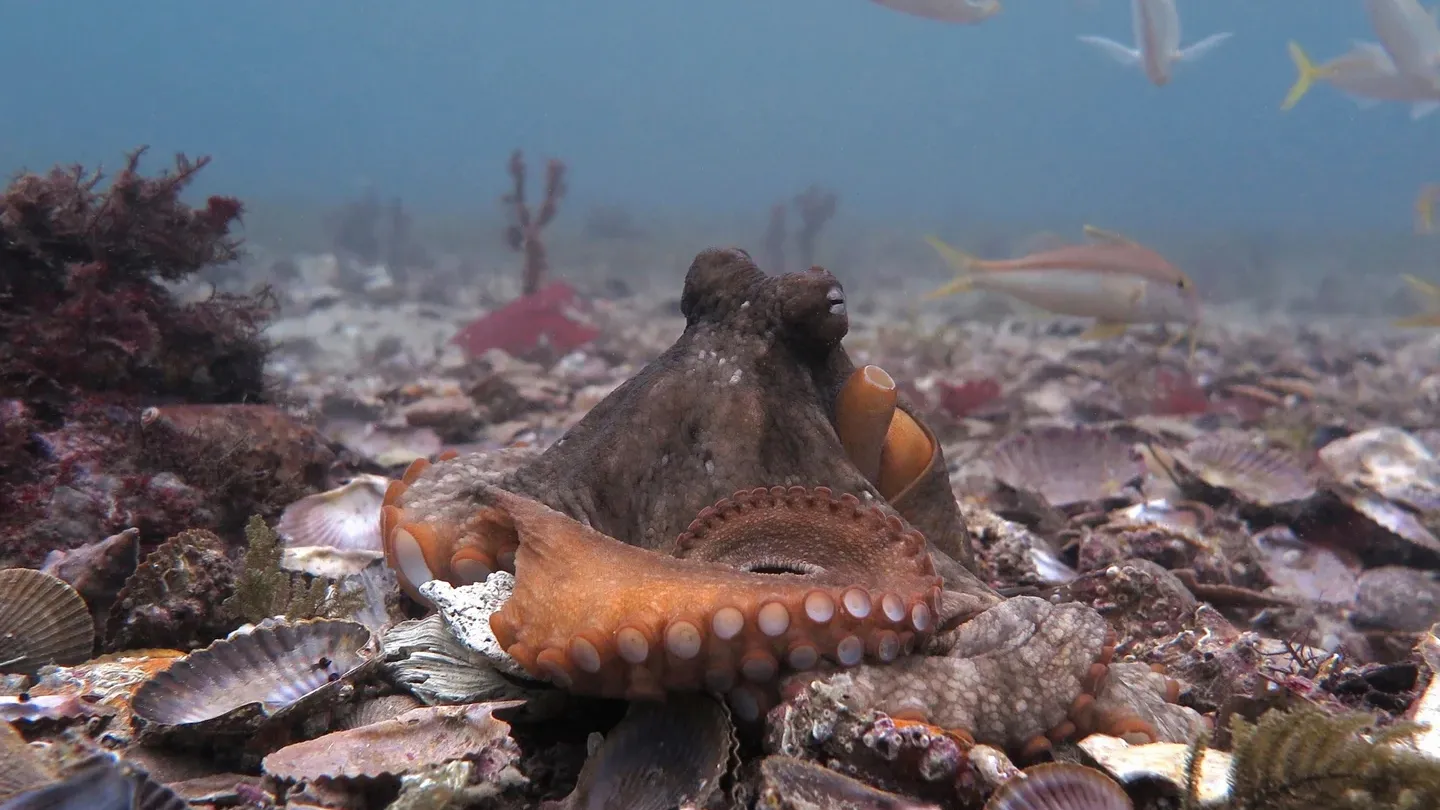Octopvus Power Plays: When a “No” Comes with a Throw

Octopuses have long fascinated scientists and ocean lovers alike. Known for their incredible intelligence, problem-solving skills, and almost alien-like adaptability, these cephalopods never fail to surprise us with new behaviors. But recent observations have revealed an unexpected twist in their social lives: female octopuses sometimes throw things at males who just won’t take a hint.
A Jet-Powered Throw
Unlike humans, octopuses don’t have hands for pitching objects—but they do have a siphon, a muscular tube that shoots out powerful jets of water. By holding shells, silt, or bits of algae in their arms and then blasting water through the siphon, female octopuses can launch their chosen “ammo” with surprising speed and accuracy.
Researchers have captured these moments on video, and the results are striking. Some males, caught off guard, visibly flinch or dodge the flying debris. This isn’t random housecleaning—it’s a calculated act of defiance.
Beyond Den-Tidying
Octopuses are known to toss out shells and scraps while tidying up their dens, creating neat little homes under the sea. But scientists noticed a difference: throws aimed at unwanted suitors are stronger, more direct, and clearly intentional. These are not just housekeeping gestures—they are messages. And that message is clear: “Back off.”
Social Signals in the Deep
This discovery shines new light on octopus behavior. While they are often seen as solitary creatures, these targeted throws suggest a form of social communication and boundary-setting that researchers are only beginning to understand. In many cases, a female’s act of hurling shells may be the most effective way to discourage a persistent male without escalating further.
A Deeper Meaning
In a world as mysterious as the ocean floor, even small behaviors reveal complex truths. Female octopuses aren’t just passive participants in the sea—they are active decision-makers, capable of defending their space and signaling their autonomy. For scientists, this behavior underscores the richness of cephalopod intelligence and the many ways animals can assert control over their lives.
So the next time you picture an octopus, don’t just think of camouflage or puzzle-solving. Think of a determined female, a sharp glare in her eye, and a well-aimed shell flying through the water. In the deep sea, sometimes the strongest “no” isn’t spoken—it’s thrown.











